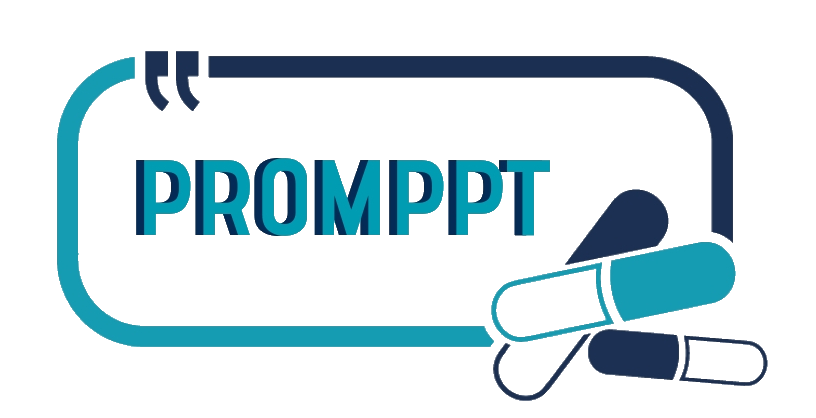About PROMPPT
PROMPPT aims to develop and evaluate a new way of providing care to people who are living with persistent non-cancer pain within primary care.
Play the video to find out more about PROMPPT:
Why are we doing this research?
Persistent pain affects up to half the UK adult population and 10-14% (around 8 million adults) say the pain causes moderate or severe interference with their life. Persistent pain means long-term pain caused by a range of conditions, but not pain caused by cancer. Sometimes it is called ‘chronic pain’. Most people with persistent pain are treated by their family doctor (GP) and many are prescribed pain medicines. Use of morphine-like painkillers called ‘opioids’ for persistent pain has increased dramatically in recent years. Twice as many people used ‘weak opioids’ (e.g. codeine) and five times more used ‘strong opioids’ (e.g. morphine, oxycodone and fentanyl patches) in 2012 compared to 2005.
However, for many people, opioids don’t help in the long-term and they often cause side-effects. Studies show that people who take regular opioids for long-term pain tend to have worse quality of life than people with long-term pain who do not take these medicines. Also, they are more likely to suffer bone fractures, addiction and overdose, especially with high doses.
Guidelines say GPs should review people taking long-term opioids regularly but often this does not happen, mainly because GPs are too busy, and many GPs say they feel dissatisfied with the care they are able to offer people with long-term pain.
A recent report recommends that clinical pharmacists should be more involved in looking after patients with long-term health problems. Clinical pharmacists are qualified pharmacists who have trained to become specialists in medicines and have done extra training in face-to-face patient care.
In future more clinical pharmacists will be working as part of the team of health professionals in GP practices, and will be able to prescribe in the same way as doctors do. The PROMPPT research aims to find out whether these clinical pharmacists can help improve care for patients who take regular opioids for long-term pain.
What does the research involve?
PROMPPT involves three work phases that involve developing the new pain review (intervention development), initial testing of the review in a research context (feasibility study), and the main trial (main trial).

You can read more about each of these phases below.
1. Intervention Development (2019-2020)
Intervention development involves a collaborative approach involving a multi-perspective qualitative study and stakeholder consultation.
The multi-perspective qualitative study, called Q-PROMPPT, aimed to find out about patients, clinical practice pharmacists and GPs’ experiences and views on:
- Using regular medication, particularly opioids, for long-term pain
- How pain medicines are currently managed and how they could be reviewed in future
- The idea of clinical pharmacists in GP surgeries reviewing patients on regular opioids
- What would make a pain medicines review relevant, useful and appealing to patients, clinical pharmacists and GPs
The information gathered from interviews, focus groups, and an online discussion forum, together with published best practice guidelines, was used to help develop a practice pharmacist pain review consultation for patients using long-term opioids for persistent pain.
2. Feasibility Study (2020-2021)
A study of 80 patients, recruited from GP practices in the West and East Midlands, tested how well clinical practice pharmacists deliver PROMPPT, whether it is acceptable and practical to deliver, and what proportion of patients agree to take part. Findings from the feasibility study provided evidence in support of these areas and progresses to a randomised controlled trial.
3. Main Trial (2022-2024)
In 2022, a full-scale trial with over a 1000 patients began to test whether delivering PROMPPT in GP practices leads to less opioid use, without making pain or pain interference worse, and whether this results in better use of NHS resources compared to usual GP care.
The PROMPPT trial has completed recruitment and recruitment is now closed.

